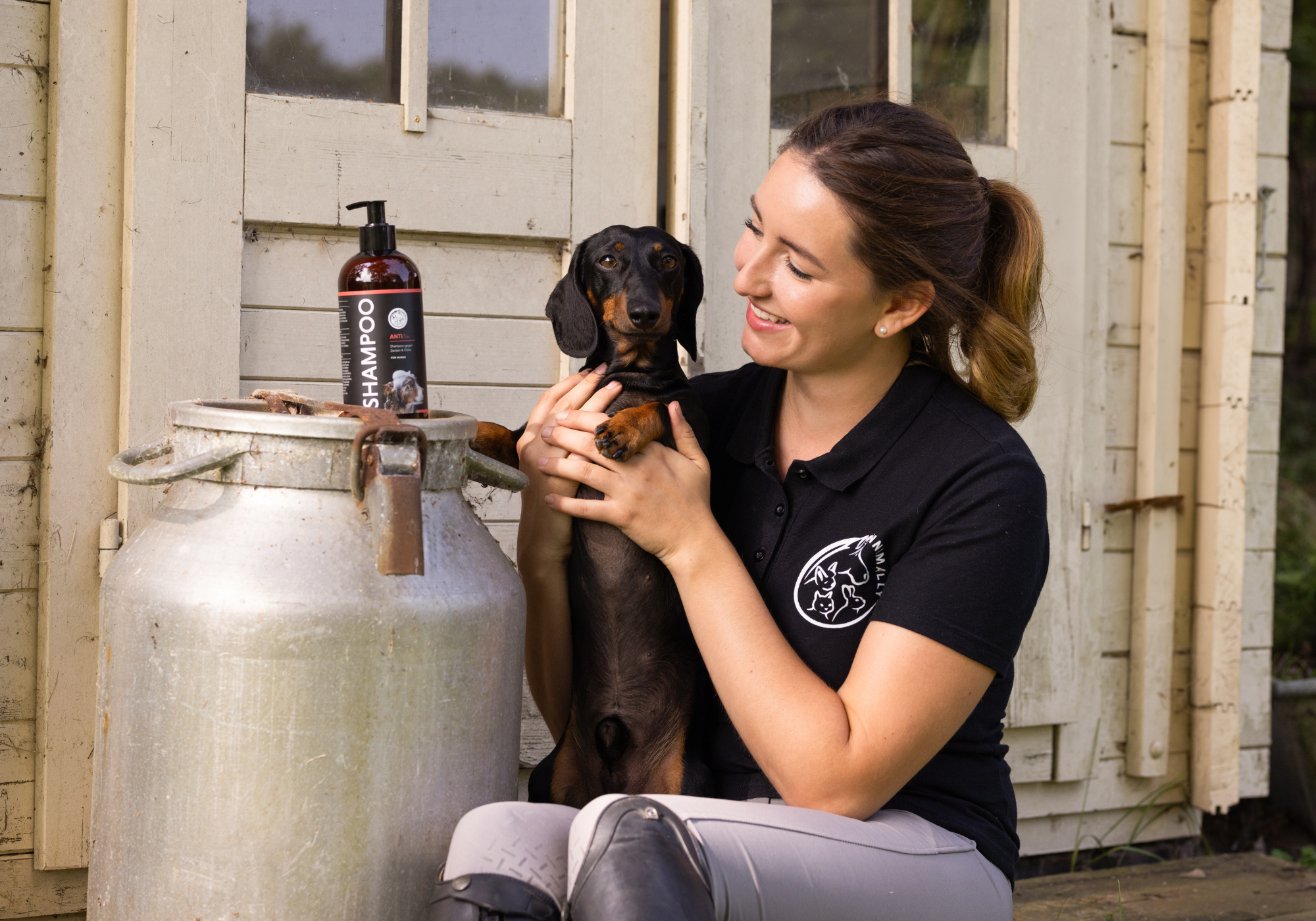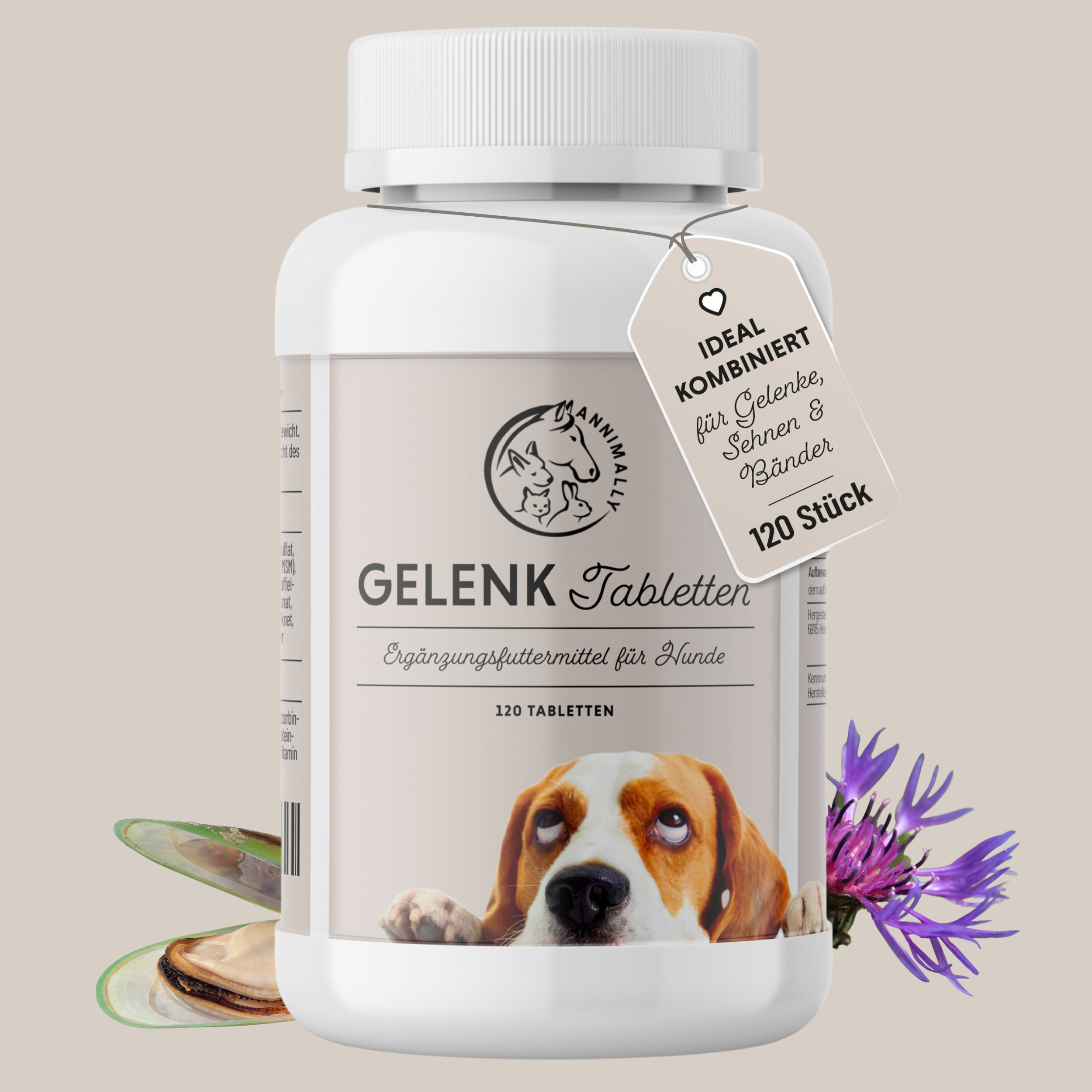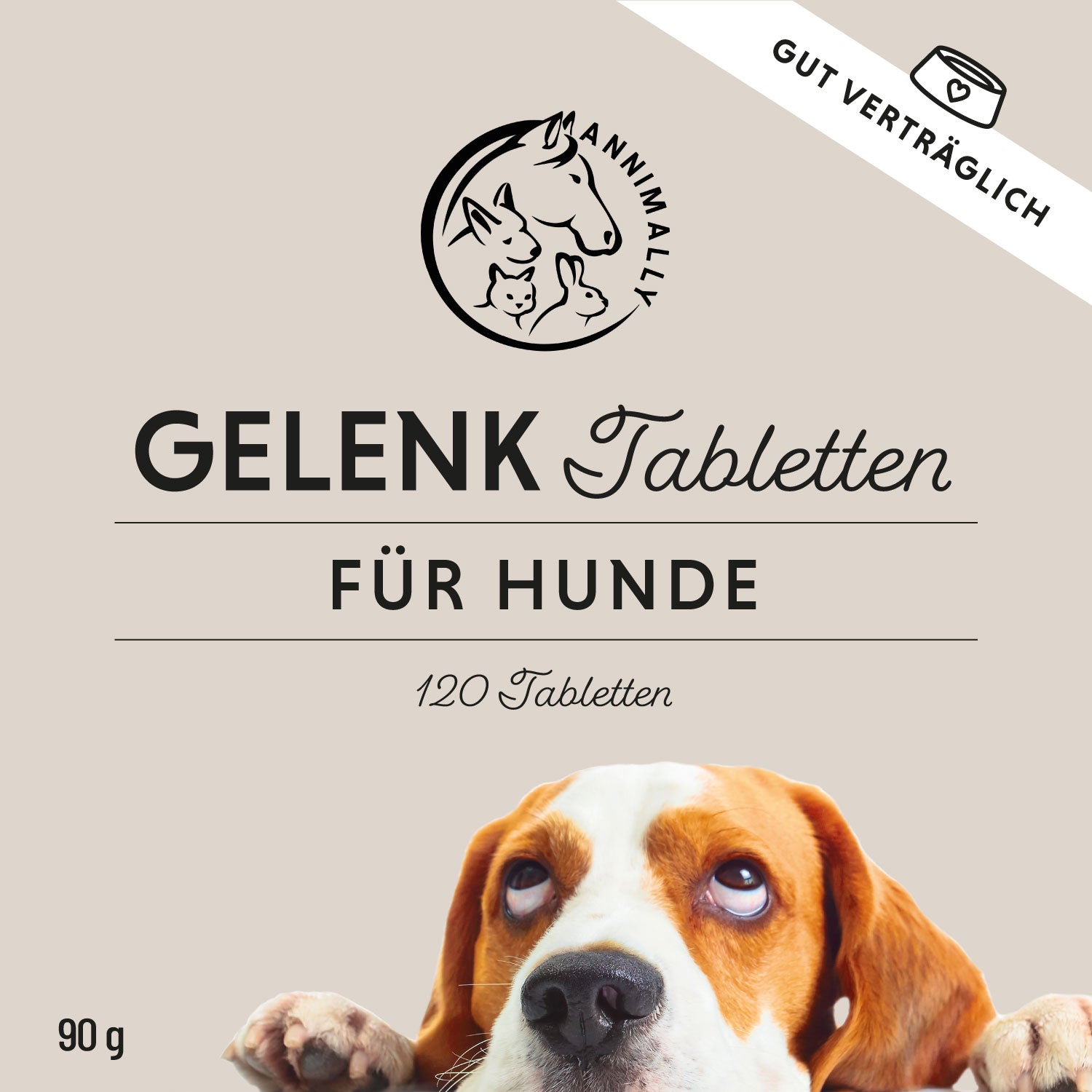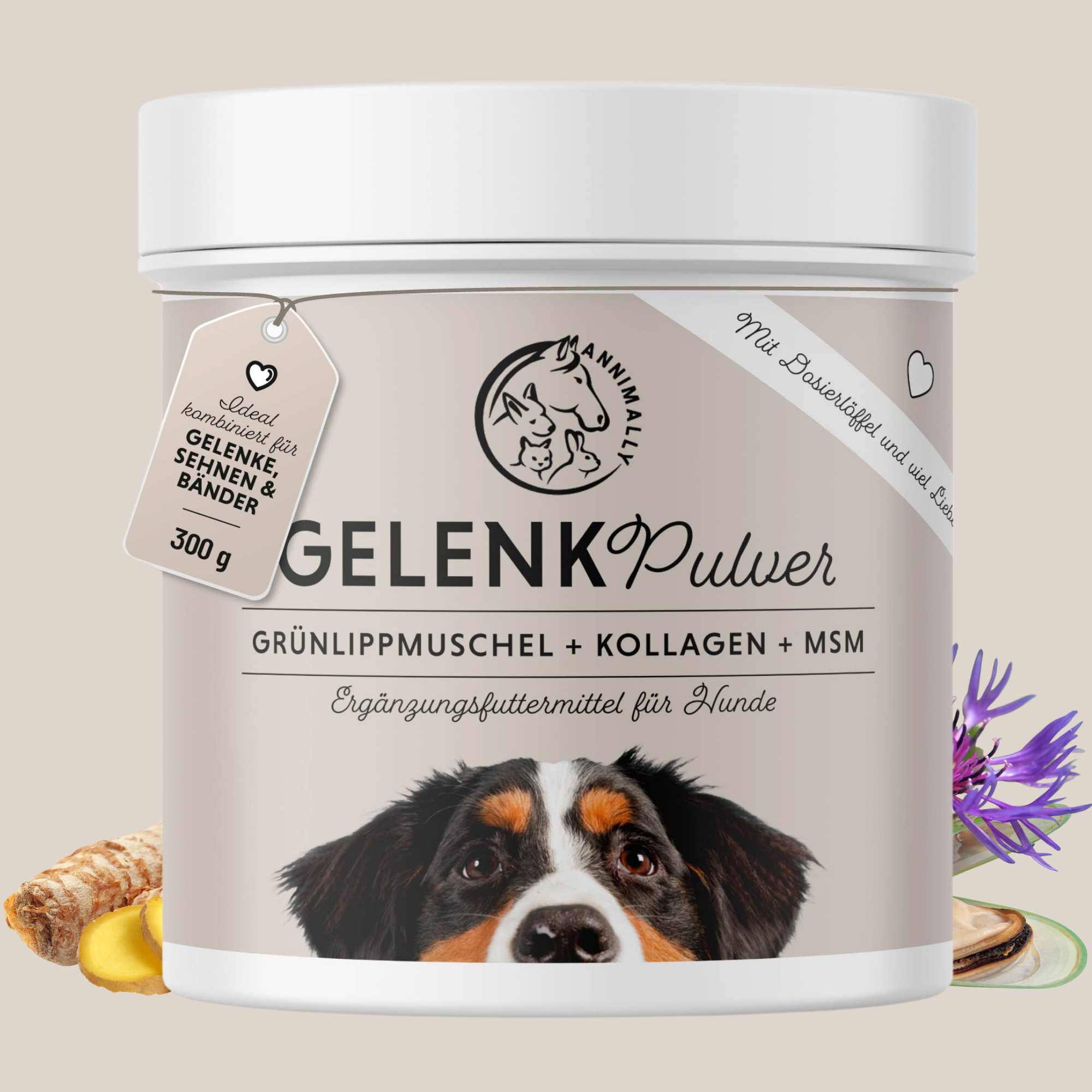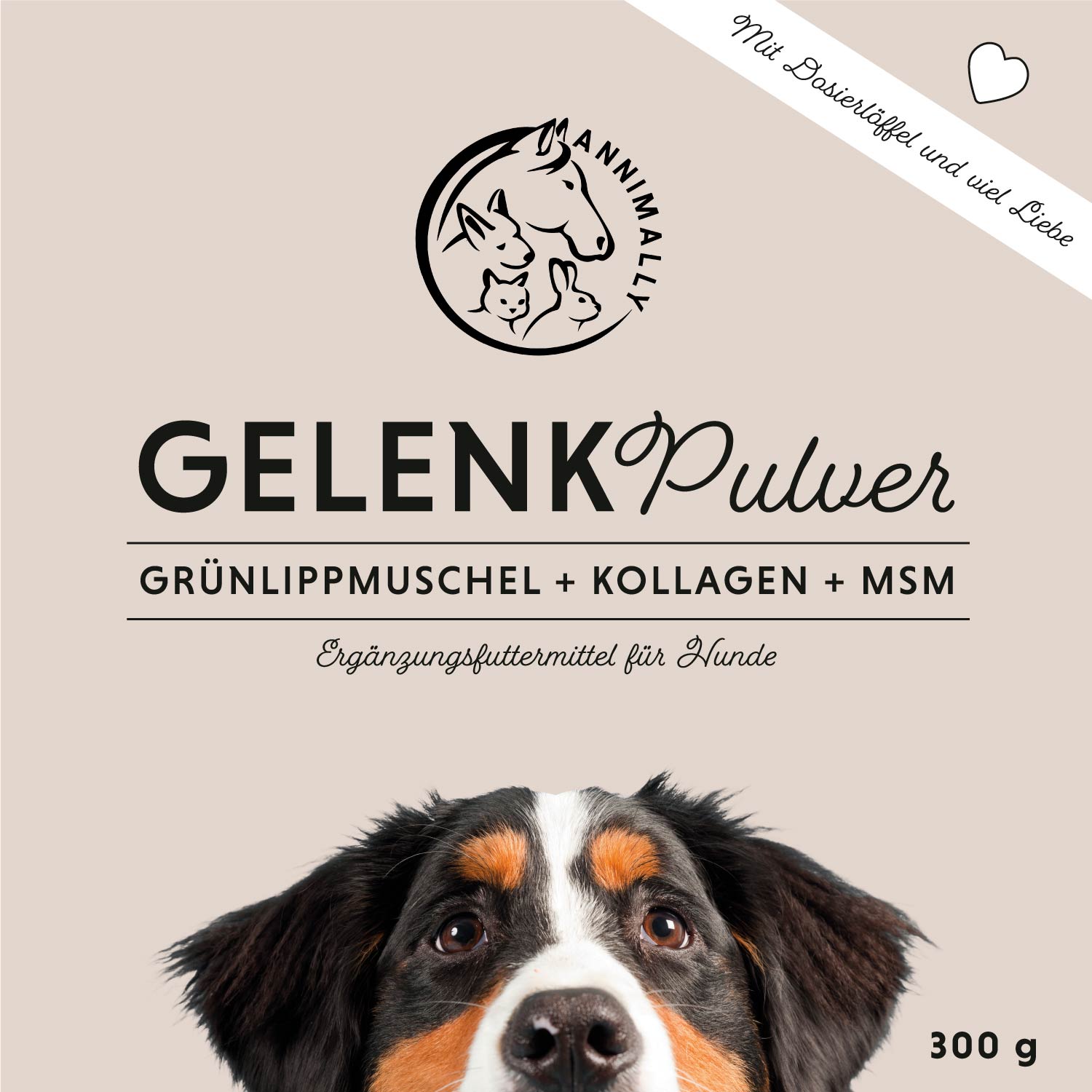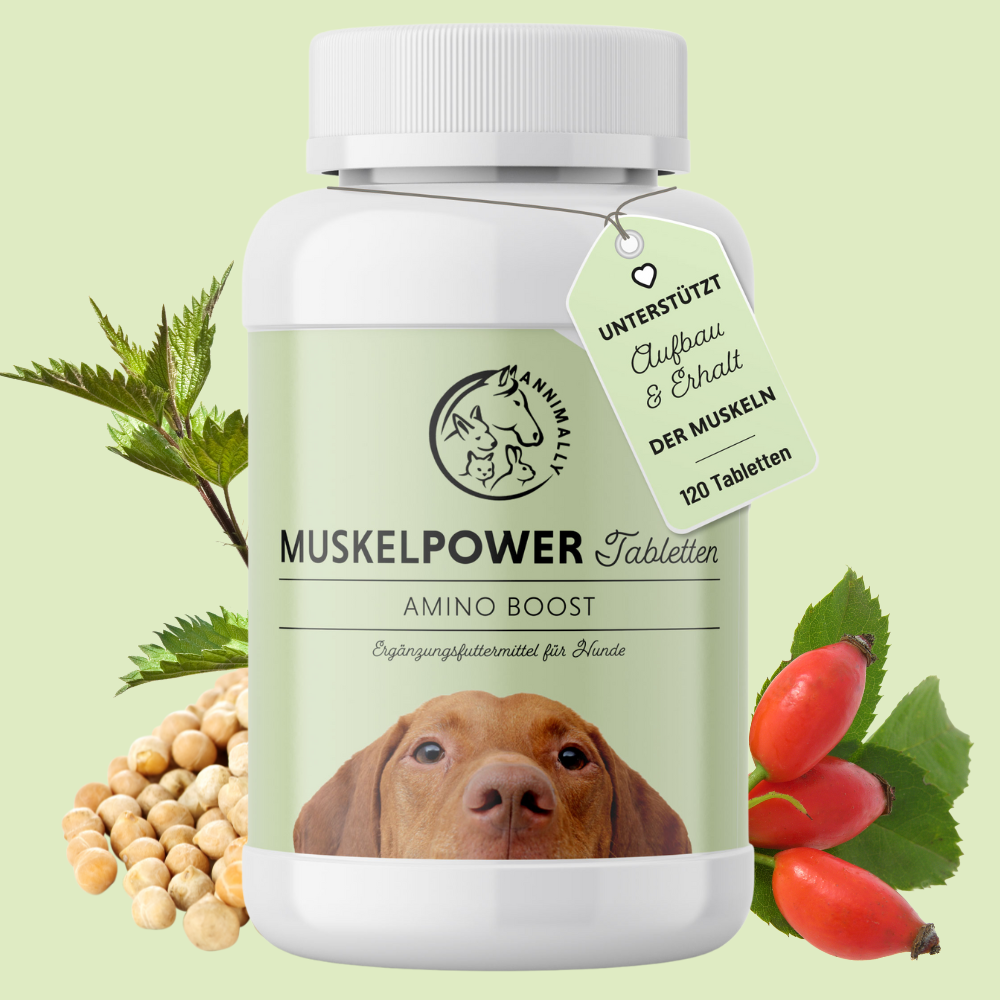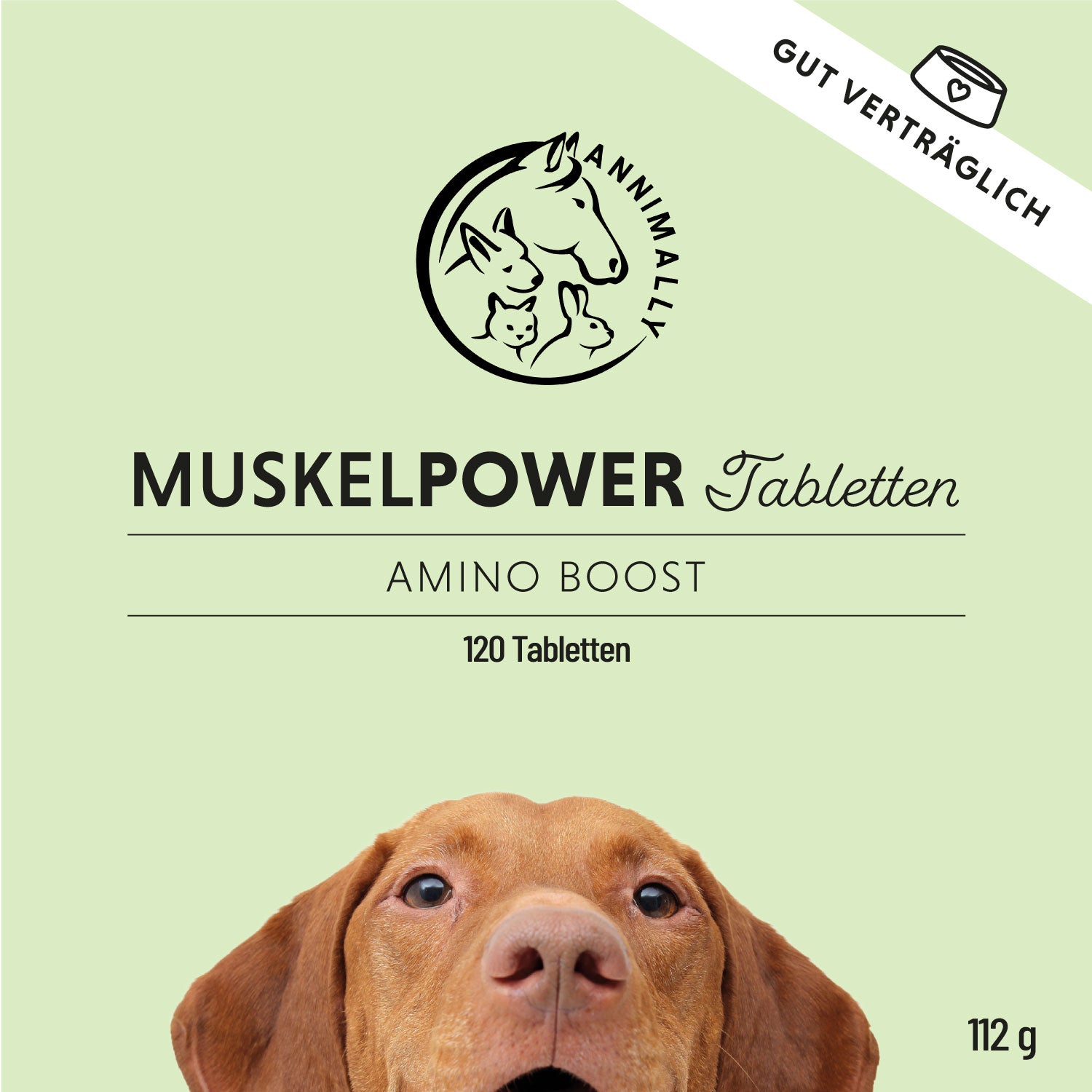Calcium for dogs: How important the mineral is for your four-legged friend
Calcium plays a crucial role for dogs - from supporting bone structure to strengthening the immune system. But what exactly makes calcium so important? Which dogs need a lot of it and how can you ensure that your dog is optimally supplied with calcium?
In this comprehensive guide, you will learn everything you need to know about the role of calcium in dog health, from natural sources of calcium to possible deficiency symptoms and the correct dosage.

Why Calcium is Essential for Dogs
Calcium is not only important for your dog's bone structure and dental health. It is involved in many bodily functions, including muscle contractions, signal transmission in the nervous system and blood clotting. Without sufficient calcium, muscles would not be able to work effectively and blood clotting would be impaired. Calcium is therefore an all-rounder that contributes a lot to your dog's general health and is essential for a vital life.
The diverse functions of calcium in the dog's body
Calcium is involved in numerous processes in your dog's body. It ensures:
-
Strong bones and teeth : A strong bone structure and healthy teeth require sufficient calcium, especially in growing puppies.
-
Muscle activity : Calcium helps muscles contract and relax, which is important for movement and stability.
-
Nerve signals : Calcium supports the transmission of signals between nerves and the brain, ensuring an effective response of the body.
-
Heart health : Calcium also supports the heart's activity as it is involved in regulating the heart rhythm.
-
Blood clotting : Without calcium, blood cannot clot properly, which can be dangerous in the event of an injury.
These diverse functions show how essential calcium is for your dog’s healthy and active life.
Recognizing Signs of Calcium Deficiency in Dogs
Calcium deficiency can manifest itself in dogs in a variety of ways. The signs range from mild discomfort to serious health problems. The most common symptoms include:
-
Weakness and tremors of the muscles : The dog appears limp or uncoordinated.
-
Difficulty walking : Due to weak bones and joints, your dog may appear wobbly.
-
Cramps : Cramps can occur, especially in cases of acute deficiency.
-
Loss of appetite : A deficiency can affect metabolism and thus appetite.
-
Brittle bones and teeth : Bones are more prone to fractures and teeth may become damaged.
If you notice these symptoms in your dog, a calcium deficiency could be the cause. It is advisable to react early and consult a veterinarian.
Causes of Calcium Deficiency in Dogs
A calcium deficiency can have various causes. The most common reasons are:
-
Unbalanced diet : Especially with homemade rations or special diets, a deficiency can occur if sufficient sources of calcium are not included.
-
Diseases : Certain diseases such as kidney failure or hormonal disorders affect calcium absorption.
-
Medications : Some medications can block calcium absorption or increase the need for it.
The causes of a calcium deficiency are varied and often difficult to identify. That's why it's all the more important that you tailor your dog's diet to his needs.
Which dogs have a particularly high calcium requirement?
Not every dog needs the same amount of calcium. Certain life stages or conditions require a higher calcium intake:
-
Puppies : They are growing, their skeleton is developing and their bones need a lot of calcium.
-
Pregnant and lactating bitches : The body of a pregnant bitch helps build the skeletal structure of the puppies and therefore requires additional calcium reserves.
-
Active dogs : Dogs that are very athletic need more minerals because their muscles and bones are subject to greater strain.
-
Seniors : Older dogs often have difficulty absorbing calcium from food and therefore require an adapted diet.
It is advisable to check your dog's calcium requirements regularly, especially during phases of life when they need more. The calcium-phosphorus ratio is also important to ensure a balanced diet.
The recommended daily calcium dose for dog nutrition
The amount of calcium required varies depending on the age, weight and health of your dog. In general:
-
Puppies : Approximately 100 to 120 mg per kilogram of body weight.
-
Adult dogs : Around 50 to 90 mg per kilogram of body weight.
-
Seniors and pregnant bitches : Individual adjustment is advisable as needs may vary.
To find the optimal dose for your dog, you can follow general guidelines or consult a veterinarian to make sure that the amount is exactly right and that calcium supply is guaranteed.
Natural Calcium Sources for Dogs
You can provide your dog with calcium through various natural foods. The best natural sources of calcium include:
-
Bones : Raw, meaty ones in particular are an excellent source and also support dental health.
-
Eggshells : They contain a particularly high amount of calcium and can be processed into powder and mixed into the food.

-
Green leafy vegetables : Broccoli, kale and spinach are rich in calcium but should only be fed in moderation as they also contain oxalates.

These sources are ideal if you want to enrich your dog's diet with natural ingredients and pay attention to calcium supply.
Be careful when feeding bones
Although bones are an excellent source of calcium, you should be careful. Cooked bones splinter easily and can cause injury. Raw, meaty ones are a safer option as they won't splinter and will help the dog clean his teeth. Make sure the bones are made from a balanced calcium-phosphorus combination.
When are calcium supplements useful?
In some cases, it can be difficult to meet your dog's calcium needs through food alone. Calcium supplements can help, especially in the following cases:
-
puppies in growth
-
Pregnant and lactating bitches
-
dogs with calcium deficiency
However, it is important to only give preparations in consultation with a veterinarian, as an overdose can also be problematic and the calcium-phosphorus ratio could be disturbed.
How much is too much? Calcium overdose
Too much calcium can harm your dog. An overdose can lead to the following problems:
-
Constipation : Calcium can put a strain on the digestive tract.
-
Kidney problems : Excessive amounts put a strain on the kidneys and can lead to kidney stones.
-
Bone damage : Too much calcium can inhibit bone growth, especially in puppies.
An overdose is often more difficult to detect than a deficiency, so the dosage should always be adjusted individually and the calcium-phosphorus ratio should always be kept in mind.
Pay attention to the correct calcium-phosphorus ratio
Calcium must be given in the right ratio to phosphorus so that the body can use it optimally. The recommended ratio of calcium to phosphorus is 1.2:1. When feeding your dog, make sure that this ratio is maintained in order to promote stable bone growth and healthy development. A balanced calcium supply can only be guaranteed if the calcium-phosphorus ratio is also observed.
Calcium in dry and wet food
High-quality dog foods usually contain the right amount of calcium and phosphorus, so if you feed dry or wet food, you usually don't need to add additional calcium sources. A look at the nutritional information on the package will help you check whether your dog is getting the right amount of calcium and whether the calcium-phosphorus ratio is correct.
When is a visit to the vet advisable?
If you notice signs of calcium deficiency or an overdose, you should definitely see your vet. A blood test can provide information about your dog's calcium levels and help adjust the correct dosage to ensure optimal calcium supply.
Common Myths About Calcium for Dogs
There are some misconceptions about calcium for dogs. A common myth, for example, is that only puppies need calcium. In fact, dogs of all ages need a balanced calcium intake, adapted to their individual needs and the calcium-phosphorus ratio.
Calcium and the BARF diet
If you feed your dog the BARF method (raw food), a source of calcium is particularly important. Bones and egg shell powder are particularly suitable. However, make sure the ratio to phosphorus is correct to avoid an overdose and to ensure an optimal calcium supply.
Conclusion: Calcium as an essential building block of dog health
A balanced calcium intake is crucial for your dog's health. Whether from natural sources or nutritional supplements - make sure you provide the right amount of calcium and phosphorus to support your dog's vitality and enable him to live a healthy life.

